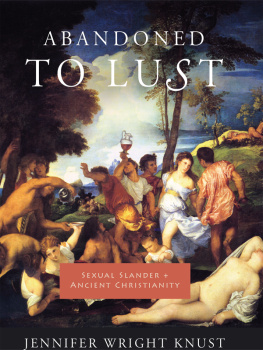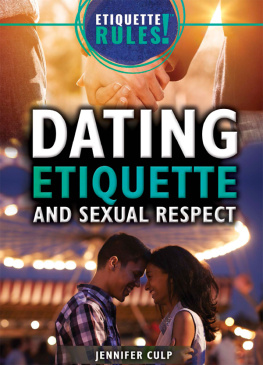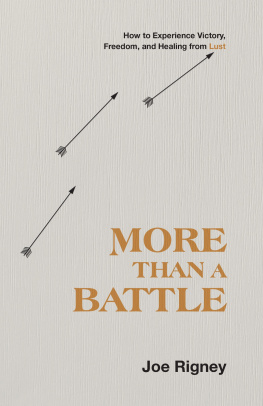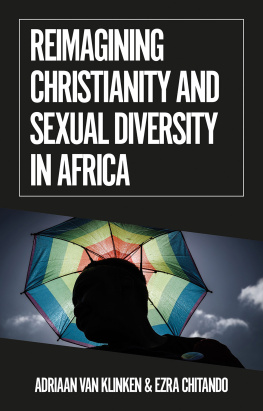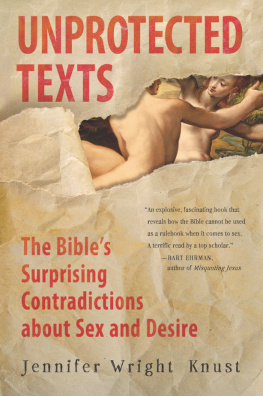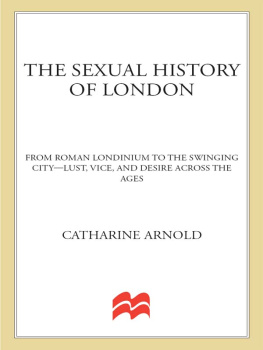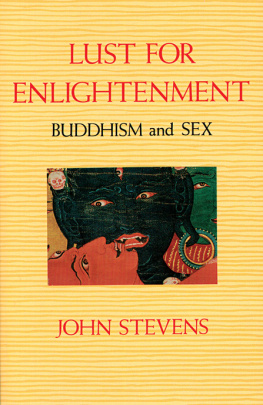Knust Jennifer - Abandoned to lust: sexual slander and Ancient Christianity
Here you can read online Knust Jennifer - Abandoned to lust: sexual slander and Ancient Christianity full text of the book (entire story) in english for free. Download pdf and epub, get meaning, cover and reviews about this ebook. City: New York, year: 2006;2012, publisher: Columbia University Press, genre: Romance novel. Description of the work, (preface) as well as reviews are available. Best literature library LitArk.com created for fans of good reading and offers a wide selection of genres:
Romance novel
Science fiction
Adventure
Detective
Science
History
Home and family
Prose
Art
Politics
Computer
Non-fiction
Religion
Business
Children
Humor
Choose a favorite category and find really read worthwhile books. Enjoy immersion in the world of imagination, feel the emotions of the characters or learn something new for yourself, make an fascinating discovery.
- Book:Abandoned to lust: sexual slander and Ancient Christianity
- Author:
- Publisher:Columbia University Press
- Genre:
- Year:2006;2012
- City:New York
- Rating:4 / 5
- Favourites:Add to favourites
- Your mark:
- 80
- 1
- 2
- 3
- 4
- 5
Abandoned to lust: sexual slander and Ancient Christianity: summary, description and annotation
We offer to read an annotation, description, summary or preface (depends on what the author of the book "Abandoned to lust: sexual slander and Ancient Christianity" wrote himself). If you haven't found the necessary information about the book — write in the comments, we will try to find it.
Abandoned to lust: sexual slander and Ancient Christianity — read online for free the complete book (whole text) full work
Below is the text of the book, divided by pages. System saving the place of the last page read, allows you to conveniently read the book "Abandoned to lust: sexual slander and Ancient Christianity" online for free, without having to search again every time where you left off. Put a bookmark, and you can go to the page where you finished reading at any time.
Font size:
Interval:
Bookmark:
ABANDONED TO LUST
GENDER, THEORY, AND RELIGION
GENDER, THEORY, AND RELIGION
Amy Hollywood, Editor
The Gender, Theory, and Religion series provides a forum for interdisciplinary scholarship at the intersection of the study of gender, sexuality, and religion.
Martyrdom and Memory: Early Christian Culture Making, Elizabeth A. Castelli
When Heroes Love: The Ambiguity of Eros in the Stories of Gilgamesh and David, Susan Ackerman
ABANDONED TO LUST
Sexual Slander and Ancient Christianity
JENNIFER WRIGHT KNUST

Columbia University Press
NEW YORK
Columbia University Press
Publishers Since 1893
New York Chichester, West Sussex
cup.columbia.edu
Copyright 2006 Columbia University Press
All rights reserved
E-ISBN 978-0-231-51004-2
Library of Congress Cataloging-in-Publication Data
Knust, Jennifer Wright, 1966
Abandoned to lust : sexual slander and ancient Christianity /
Jennifer Wright Knust.
p. cm. (Gender, theory, and religion)
Based on the authors thesis (doctoral)
Columbia University, 2001.
Includes bibliographical references (p. ) and index.
ISBN 0-231-13662-5 (alk. paper)ISBN 0-231-51004-7 (e-book)
1. SexReligious aspectsChristianityHistory of doctrineEarly church, ca. 30-600. 2. Libel and slanderReligious aspectsChristianityHistory. 3. SexRome. 4. Libel and slanderRome. I. Title. II. Series.
BR195.S48K58 2006
241.66dc22
2005049778
A Columbia University Press E-book.
CUP would be pleased to hear about your reading experience with this e-book at .
For my grandmothers, Lillian Meinardus Wright and Jean Thorson Nash
CONTENTS
INTRODUCTION:
Whos on Top? Sex Talk, Power, and Resistance
This project began as a dissertation written at Columbia University under the direction of Vincent L. Wimbush, currently professor of religion at Claremont Graduate University. One could not have asked for a better advisor; to him I remain forever in debt. Roger S. Bagnall, professor of history and classics at Columbia University, and Elizabeth A. Castelli, associate professor of religion at Barnard College, read numerous drafts, offering invaluable, extensive, and detailed advice. Their generosity as teachers and mentors is astonishing; I could not have completed either the dissertation or this book without them. While writing the dissertation, I was fortunate to be awarded an American Fellowship from the American Association of University Women; I remain grateful for this much-needed support.
Several working groups and seminars have been kind enough to offer both encouragement and rigorous critique of this project along the way. These include the Boston Area Patristics Group, the Paul and Politics Section of the Society of Biblical Literature, the Critical Biblical Studies Group of the Boston Theological Institute, and the Second Annual Graduate Studies Conference in the Classics at Columbia University. I am especially grateful to Annewies van den Hoek and Gregory Mobley for providing me with opportunities to present my work to colleagues in my new home, Boston. Richard Horsley, Neil Elliott, Cynthia Briggs Kittredge, and Simon Price offered welcome feedback following the presentation to the Paul and Politics Group.
My former colleagues at the College of the Holy Cross have created a wonderful intellectual community that I treasured while I was there. Alan Avery-Peck, Mary Ebbott, Mary Hobgood, Caroline Johnson Hodge, Alice Laffey, Frederick J. Murphy, and Joanne Pierce were particularly generous to me personally. Professor Johnson Hodge kindly read one chapter of the book, Professor Ebbott helped me clarify and improve one particular argument, and Professors Avery-Peck, Hobgood, Laffey, Murphy, and Pierce consistently provided voices of reason just when I needed them. My former student Kate Warren assisted in double-checking many of the classical references; her care and attention to detail are much appreciated.
I was honored to receive fellowships from the American Council of Learned Societies and the Radcliffe Institute for Advanced Study for the academic year 200304, providing me with the opportunity to devote myself full-time to research and writing. Thanks to that year, and the support of these fine institutions, I was finally able to complete all the major revisions and additions I had planned. The Radcliffe Institute provided an ideal setting for this work. The staff is exceedingly supportive and professional, the other fellows were tremendously energetic and engaging, and the resources made available to us are beyond compare. In this context, Caroline Elkins, Jane Gaines, Drew Gilpin Faust, Oded Goldreich, Fiona Griffiths, Meryl Hamilton, Soledad Loaeza, Dana Ron, I. Tony Rufo, Arielle Saiber, Paula Soares, Heike Trappe, Judith Vichniac, Tandy Warnow, and Irene Winter deserve my special thanks. Fiona Griffiths kindly read and discussed the final chapter with me at great length, providing very helpful comments. Jeremy Galen, my Radcliffe research partner, carefully checked the entire book manuscript for errors and infelicitous sentences. Jeremy, you are a star.
Numerous other colleagues have been generous readers and conversation partners; their comments, challenges, and advice have been much appreciated. Bart Ehrman kindly read and commented upon the entire dissertation and the new chapters composed for this book. His encouragement has meant a great deal to me. William V. Harris served on my dissertation committee and offered exceedingly helpful advice. He has been my teacher and my friend. Gay Byron, Laura Harrington, and Rosamond C. Rodman have been kindred spirits and colleagues since our Columbia days. I thank them for sharing their insights with me.
I am grateful to Columbia University Press for the professionalism and enthusiasm with which this project has been greeted. It has been a true pleasure to work with Wendy Lochner, senior executive editor; Amy Hollywood, Monrad Professor of Christian Studies at Harvard Divinity School and editor of the Gender, Theory, and Religion Series; and Michael Haskell, my manuscript editor. Professor Hollywoods recommendations regarding improvements to the manuscript were particularly detailed and helpful. Jennifer A. Glancy, professor of religious studies at Le Moyne College, also offered comments and suggestions regarding the final manuscript. I am so thankful for her important advice.
As is clear from this long list of acknowledgements, I have been very fortunate to have been challenged, encouraged, indulged, and prodded by an illustrious group of scholars and readers from a variety of disciplines throughout the course of this project. I have done my best to incorporate their recommendations. Any mistakes remain my own.
Finally, my family and friends have been loving, supportive and very, very patient with me as I labored on this project. Thanks to Elizabeth, Earl, Sarah, Hannah, and Nathanael Kooperkamp, to Helle Thorning, Bennet Wine, and Rebecca and Kaleb Thorning-Wine, to the Reverend Robert Castle, to the Reverend Suzanne Woolston Bossert, Pastor Carl Storms, and the Reverend Patricia Coughlin, to Bobbi and Rob Macdonald, to James Bailey, to Herbert and Christa Knust, and especially to my mother and father, Charles and Sandra Wright. My immediate family, Stefan, Axel, and Leander, have been my constant support and inspiration. My grandmothers Lillian Meinardus Wright and Jean Thorson Nash died while I was writing this book and I dedicate it to their memory. Grandma Billie and Grandma Jean, you are missed.
Abbreviations follow the recommendations of The Oxford Classical Dictionary, 3rd ed., edited by Simon Hornblower and Antony Spawforth (Oxford: Oxford University Press, 1999);
Next pageFont size:
Interval:
Bookmark:
Similar books «Abandoned to lust: sexual slander and Ancient Christianity»
Look at similar books to Abandoned to lust: sexual slander and Ancient Christianity. We have selected literature similar in name and meaning in the hope of providing readers with more options to find new, interesting, not yet read works.
Discussion, reviews of the book Abandoned to lust: sexual slander and Ancient Christianity and just readers' own opinions. Leave your comments, write what you think about the work, its meaning or the main characters. Specify what exactly you liked and what you didn't like, and why you think so.

